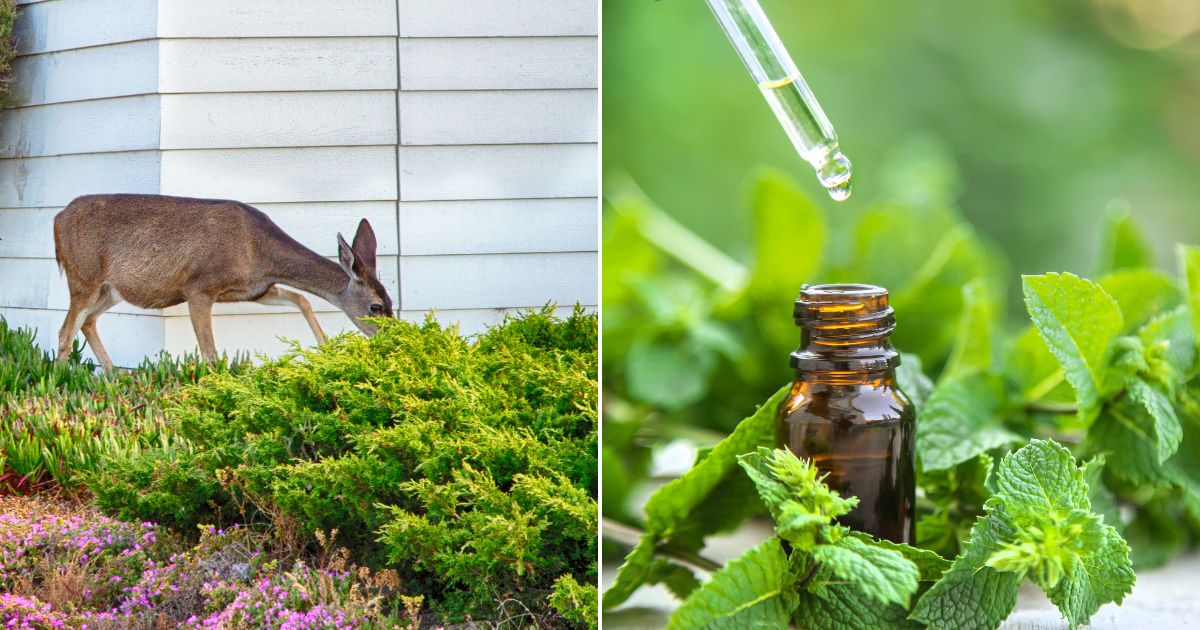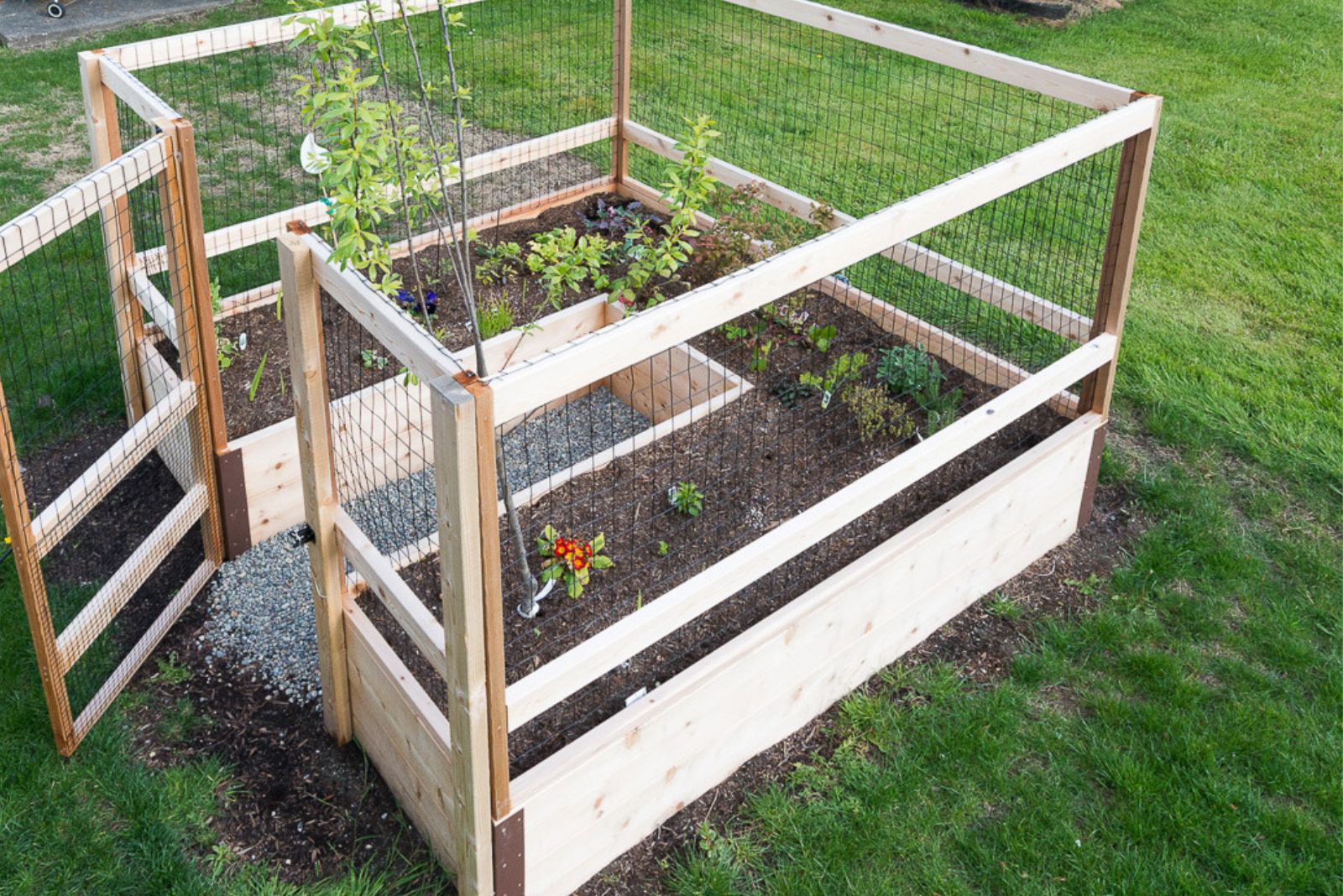I don’t know about you, but I have never seen a deer grazing in my garden. But I have seen the havoc they wreak in my vegetable plots, which is why I’m on the constant look out for things that will keep them away.
At this point I just plant a little extra and have them eat it, but I’ll always try a good repellent, such as cinnamon, peppermint oil, clove oil, etc.
Deer will hate this concoction and your days dealing with them grazing on your veggies, decimating your orchard, and spreading ticks all over your garden will be numbered if you use it.
Here’s how to make this repellent (and some others) to create a deer-free yard.
Why Does It Work?
Cinnamon, peppermint oil, clove oil, and garlic have strong scents which don’t appeal to deer, and that’s the reason why these animals tend to stay away from plants exuding them.
Even if you look at the ingredients of store-bought deer-repellents, you’ll notice that the most common ingredients are those with strong smells, such as garlic, peppermint oil, and rotten eggs.
So, how do you make these ingredients work?
How To Make It
Making a homemade deer repellent is very simple. You can mix one whole egg (shell and all), a gallon of water, a cup of milk, and a good amount of garlic powder and cayenne pepper.
This concoction has a really bad smell, which repels me, too, but it definitely keeps the deer away and lets them know that your plants are not for eating.
Here is some more info on how to make it:
This second recipe has a much better smell to it.
Combine a teaspoon of non-detergent dish soap (I use Castille soap), a tablespoon of cooking oil, and a whole cup of vinegar. Next, add cinnamon, clove, and peppermint oils (about 10-20 drops of each).
Once you make either of these recipes, try it in a small area first to make sure it won’t damage your plants. The first recipe can damage your lawn (don’t ask me how I know), so be careful when using it.
If the tested plants are all safe, you can apply the concoction on all the others that get decimated by deer. Put these liquids in spray bottles or use a paintbrush to apply them.
Also, I don’t place it on fruits, veggies, and plants I’ll eat, so don’t apply it to your basil and tomatoes.
Pro tip: Make sure to reapply the mixture every couple of days during windy and rainy weather conditions.
Other Natural Ways To Deter Deer
Deer detest many different scents, and the good news is that there are many fragrant plants you can add to your garden to deter them.
Growing deer-resistant perennials such as lavender, daylilies, catnip, sage, irises, etc. will keep these munchers away.
They won’t go anywhere near these plants and if you make them the first line of your defense, they won’t go into your garden and will look for food elsewhere.
Another way to keep deer away is to fence them out (if you don’t mind this look). You can encircle your entire property or just the area deer like to visit with an eight-feet-tall mesh metal fence.
Of course, this structure can be an eyesore, but you can make it work. If you can make an investment in your future, opt for a garden box with a deer fence.
This structure will look amazing in your garden and keep those pesky deer away.


